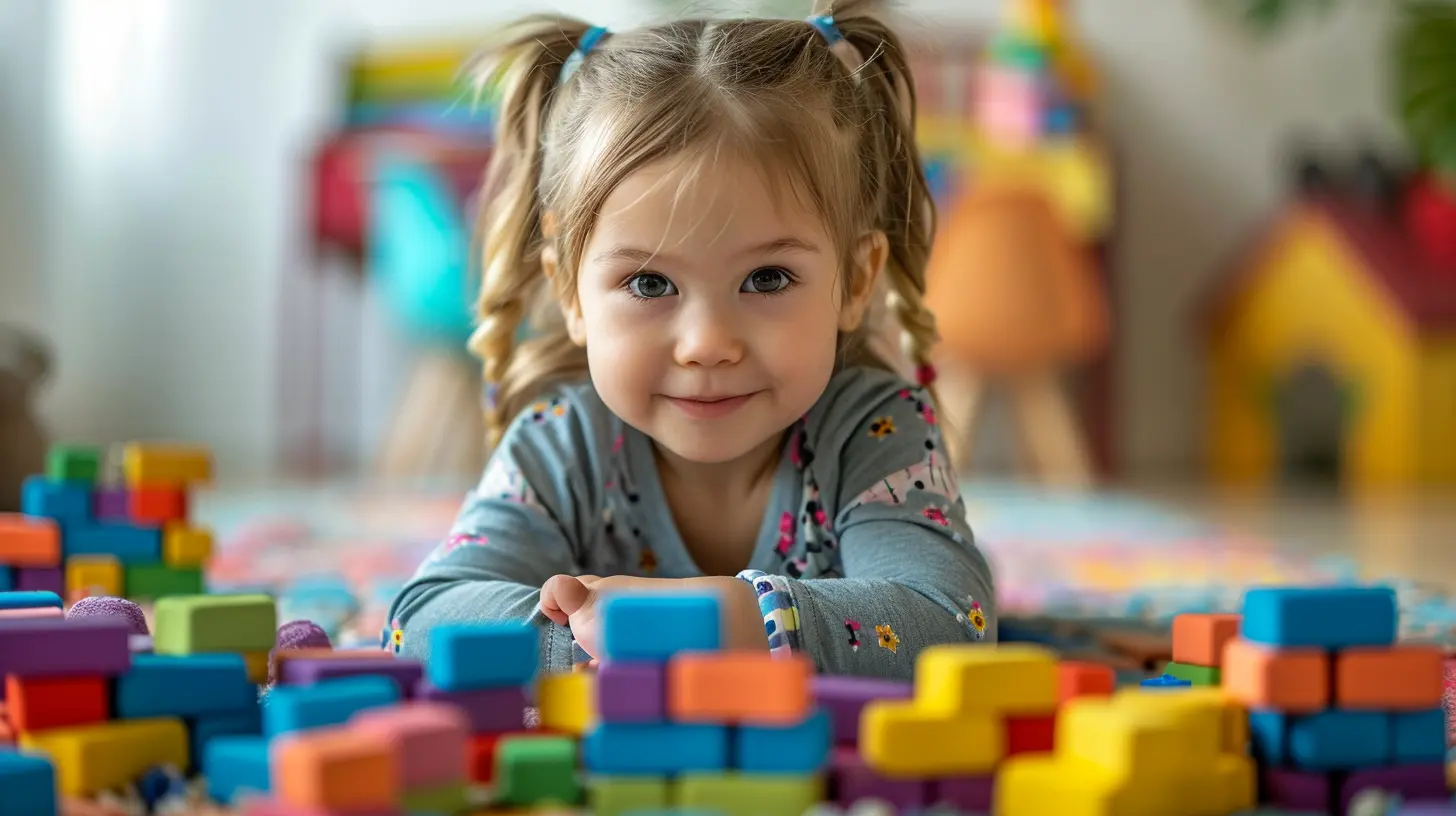The Role of Play in Childhood Mental and Physical Health
30 August 2025
Play is often seen as just fun and games, but in reality, it plays (pun intended!) a crucial role in a child's overall development. Whether it's running around the playground, playing make-believe, or even engaging in structured sports, play lays the groundwork for both mental and physical well-being.
In today's fast-paced world, where kids are spending more time on screens than ever before, it's important to remind ourselves why play isn't just an optional activity—it's essential. Let’s take a deep dive into how play shapes childhood mental and physical health and why we should encourage more of it.

Why Play Matters for Children's Health
Think about it—when you were a kid, what were some of your best memories? Chances are, they involved some form of play. Whether it was tag, hide and seek, or simply running around in the backyard, those moments were more than just fun—they were helping shape your body and mind.Children don’t just play for entertainment; they play to learn, grow, and build relationships. Play is how kids develop problem-solving skills, emotional resilience, and strong bodies.

The Mental Health Benefits of Play
1. Boosts Emotional Well-being
Kids experience stress and anxiety just like adults. Play provides an outlet for them to express emotions, process feelings, and develop coping mechanisms. When children engage in imaginative play, they explore different emotions and learn how to deal with various situations, which ultimately helps build emotional strength.2. Encourages Social Development
Ever watched kids playing together? They negotiate rules, solve problems, and sometimes argue (which is part of life!). Through these interactions, they develop crucial social skills like cooperation, patience, and empathy. Role-playing games, for example, allow children to step into someone else's shoes, improving their understanding of different perspectives.3. Enhances Cognitive Abilities
Play isn't just about physical movement—it's mental exercise, too. Games that involve strategy, puzzles, or building blocks enhance cognitive skills such as problem-solving, creativity, and critical thinking. Even simple activities like playing pretend can boost language development and storytelling skills.4. Reduces Stress and Anxiety
Children, like adults, need ways to manage stress. Having unstructured playtime allows them to unwind and express themselves freely without the pressures of school or homework. It’s like hitting a mental refresh button!
The Physical Health Benefits of Play
1. Encourages an Active Lifestyle
One of the biggest concerns today is childhood obesity, and play can help tackle that. Running, jumping, climbing, and even dancing contribute to a child's physical development and help establish an active lifestyle from a young age. The more kids move, the healthier they become.2. Develops Motor Skills
From learning to throw a ball to balancing on one foot, play helps children develop both fine and gross motor skills. Activities like drawing improve hand-eye coordination, while running or skipping strengthens muscles and improves balance.3. Strengthens the Immune System
Spending time outdoors and engaging in physical play can actually help strengthen a child's immune system. Exposure to different environments builds resistance to common illnesses and promotes overall well-being.4. Improves Sleep Patterns
Ever noticed how kids sleep better after a fun day of playing outside? Physical activity helps regulate sleep cycles, ensuring children get the rest they need for growth and development. A well-rested child is a happier, healthier one!
The Different Types of Play and Their Impact
Not all play looks the same, and each type has its own benefits. Let's break it down:1. Free Play
This is unstructured play where kids call the shots. It includes running around, climbing trees, or simply using their imagination to create games. Free play helps children develop creativity, decision-making, and independence.2. Physical Play
This is the type of play that involves movement—running, jumping, and playing sports. It’s great for building strength, endurance, and coordination. Plus, it improves cardiovascular health and keeps kids fit.3. Social Play
Playing in groups teaches kids how to interact, compromise, and collaborate. Think board games, team sports, or role-playing games where they learn to work with others and manage conflicts.4. Constructive Play
This involves building things—Legos, puzzles, or even fort-making. It enhances problem-solving skills, patience, and spatial awareness. Kids learn to experiment, which boosts their cognitive abilities.5. Imaginative Play
Also known as pretend play or role-playing, this type allows kids to step into different roles, whether they're playing house, being superheroes, or running a pretend store. This type of play builds creativity and emotional intelligence.What Happens When Kids Don't Get Enough Play?
Just as play has benefits, the lack of it has consequences. Children who don’t engage in regular play may experience:- Increased stress and anxiety – Without an outlet for their energy and emotions, kids can feel frustrated and overwhelmed.
- Reduced social skills – Less playtime means fewer opportunities to develop important interpersonal skills.
- Higher risk of obesity – A sedentary lifestyle can lead to weight gain and related health problems.
- Weakened motor skills – Without physical activity, muscle development and coordination can suffer.
- Lower cognitive development – Play builds problem-solving and critical-thinking skills, which are crucial for academic success.
How Parents and Educators Can Encourage More Play
Modern life sometimes makes play a challenge—schedules are packed, and screen time is on the rise. But there are simple ways to ensure children get the playtime they need:1. Limit Screen Time
It’s easy to hand a child a tablet, but too much screen time can hinder active play. Set reasonable limits and encourage outdoor activities.2. Encourage Outdoor Play
Fresh air and sunshine do wonders for kids. Encourage them to play outside, whether it’s riding bikes, playing tag, or simply exploring nature.3. Create Play-Friendly Spaces
A backyard, park, or even a designated playroom at home can make a big difference. Make sure kids have a safe and inviting space to play freely.4. Join in the Fun
Children love when adults play with them. Whether it’s a board game, a sport, or a simple game of catch, showing enthusiasm for play teaches kids that it's important.5. Schedule Playdates
Social interaction is a big part of play. Organizing playdates with friends can help kids develop social and emotional skills in a fun environment.6. Incorporate Play in Learning
Learning doesn’t have to be dull. Educational games, storytelling, and hands-on activities make learning fun and engaging.Final Thoughts
Play isn’t just about entertainment—it’s about health, growth, and happiness. It shapes a child’s mental, emotional, and physical well-being in ways that structured learning alone can’t.So, if you’re a parent, teacher, or caregiver, make play a priority. Let kids be kids, because every game they play today builds a healthier, happier tomorrow.
all images in this post were generated using AI tools
Category:
Pediatric HealthAuthor:

Arthur McKeever
Discussion
rate this article
1 comments
Kingston Powell
Thank you for this insightful article! It's a wonderful reminder of the importance of play in children's lives. As a parent, I’ve seen firsthand how play fosters creativity and resilience. Encouraging our kids to engage in playful activities is essential for their overall well-being. Keep spreading awareness!
September 4, 2025 at 2:43 PM

Arthur McKeever
Thank you for your kind words! I'm glad the article resonated with you and highlights the crucial role of play in fostering well-being in children.


